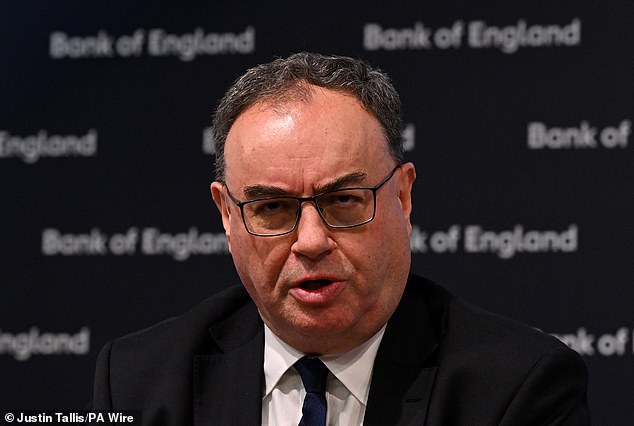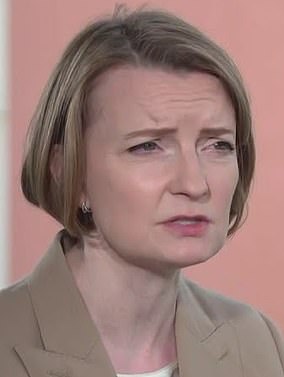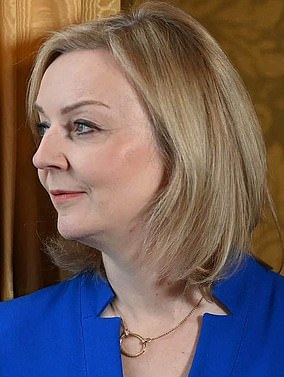Andrew Bailey hinted last night that the Bank of England could start cutting interest rates before the US Federal Reserve amid “strong evidence” that inflation is falling.
The comments came as the governor’s Fed counterpart Jerome Powell warned that the U.S. battle to rein in price increases would “likely last longer than expected,” in comments that further irritated already volatile markets.
Bailey, speaking at the International Monetary Fund (IMF) in Washington, said he saw “strong evidence” that the process of falling inflation was “making its way.”
He said it was possible that the path of rates on both sides of the Atlantic would diverge, adding: “Inflation dynamics are quite different now between Europe and the United States.”
Today’s figures are expected to show that UK inflation fell in March from 3.4 per cent in February, moving closer to its 2 per cent target.
Positive signs: Bank of England Governor Andrew Bailey (pictured) said he saw “strong evidence” that the process of falling inflation was “making its way”
That contrasts with the outlook in the United States, where inflation has been persistent in recent months and rose to 3.5 percent in March.
Bailey’s comments were echoed by European Central Bank (ECB) chief Christine Lagarde, who told broadcaster CNBC that barring additional shocks, it would be time to cut rates in the eurozone “in the near future.” reasonably short.”
By contrast, Federal Reserve Chair Powell said that “recent data clearly have not given us greater confidence” that inflation is under control and “instead indicate that it is likely to take longer than expected to achieve that trust.”
Wall Street stocks, which were trying to recover after a sell-off the previous day, stumbled in the wake of the comments. The markets were already in a feverish mood.
The FTSE 100 fell 145.17 points or 1.8 per cent to 7,820.36 yesterday in its biggest fall since July last year, with similar falls seen on the French and German stock markets.
Yields on UK 10-year government bonds – which rise as their prices fall – rose above 4.3 per cent, while US 10-year bonds edged closer to 4.7 per cent. , in both cases the highest levels since November.
“We have the perfect storm,” said Florian Ielpo, head of macro at Lombard Odier Investment Managers, pointing to “geopolitical risks, combined with existing inflation and interest rate anxieties.”
In Britain, markets were spooked by official figures showing higher-than-expected wage growth of 6 percent. The Bank of England wants wage growth to cool before it starts cutting interest rates.
Signs that an escalation of the conflict in the Middle East could further increase inflationary pressures were also rattling investors’ nerves.
And better-than-expected U.S. retail sales figures released Monday have added to signs that the world’s largest economy is still too hot for the Federal Reserve to start cutting rates.
The Bank of England, the Federal Reserve and the ECB raised rates to reduce inflation. Until now, it was thought that rates would not fall faster in the United Kingdom and the eurozone than in the United States due to the likely currency impact.
Previous cuts in this country are likely to weaken the pound and euro against the dollar, raising import costs and increasing inflation.
Yesterday’s comments from Bailey and Lagarde suggested those fears were being put to rest.
And last night the markets were betting that the Bank of England will start cutting in August and that the Federal Reserve will not act until September.



